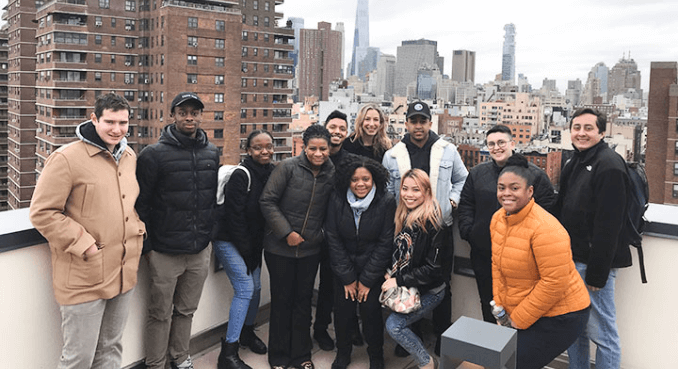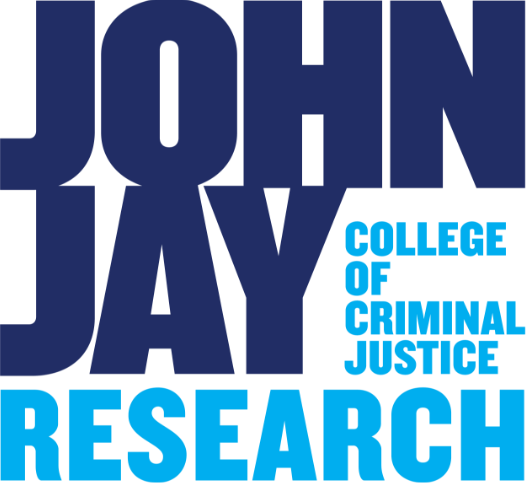America’s Race and Gender Problem in the Workplace
Michelle Holder tracks labor market disparities in the African American population
Author: Michael Friedrich

In the U.S. labor market, success often seems to depend on the demographic group you belong to.
African American women suffer from a monumental wage gap when compared with white men. Labor economist Dr. Michelle Holder, an assistant professor at John Jay College of Criminal Justice, has spent her career investigating why some groups face greater barriers in the workplace. “There’s this narrative in our culture that if you work hard enough, if you put in enough time, put in enough effort, then you too can succeed in this economy—that it’s open to everyone,” said Holder. “But that narrative misses a lot of things.”
Namely, it overlooks the well-documented wage gaps associated with belonging to non-white, non-male populations in the United States. According to the Institute for Women’s Policy Research in 2018, women’s median annual earnings were 81.6% of men’s. And according to the Economic Policy Institute in the same year, Black workers were paid 16.2 percent less than white workers. Black women workers are subject to both effects.
In March, to coincide with Equal Pay Day, Holder published new research through the Roosevelt Institute that focuses on that “double gap.” The study uses three quantitative methods to estimate that African American women involuntarily forfeited approximately $50 billion in wages to corporate America during 2017, a staggering figure. “The double gap essentially means that African American women are vulnerable to two different types of wage discrimination,” said Holder. “There’s an intersectional kind of mechanism going on here.”
These findings are crucial. While previous studies have shown that Black women earn around 61 cents on the dollar when compared with their white male counterparts, this new aggregate number makes clear how massively pay disparity harms this population and benefits corporations. “That means fewer assets in the Black community. That means a loss of income to Blacks in the U.S,” said Holder. “It has implications for single Black mothers struggling to provide for their children.”
For Holder, labor economics is personal. Born and raised in Brooklyn, she watched her single, immigrant mother struggle to get ahead in the job market. “It didn’t seem like public policies were helping our particular family or the families that I grew up around,” she said.
Holder’s previous research focused on discrimination in the workplace for African American men. In the aftermath of the 2008 financial crash, she was living in New York City’s historically-Black Harlem neighborhood, and saw firsthand the damage it was doing to men in her community. That inspired her 2017 book, African American Men and the Labor Market During the Great Recession, which found that unemployment was especially high among Black men in the U.S. They were not just crowded out of high-wage occupations; they were crowded out of the labor market altogether.
“One of the things I suggest is that discrimination probably occurred,” said Holder. “You had fewer job openings. You had many, many applicants for every opening. So employers were able to engage in behaviors where their biases could be satisfied.”
Before joining the faculty at John Jay College, Dr. Holder was a senior labor market analyst at the Community Service Society of New York, a 160-year-old anti-poverty organization. She also served as an economist at the Office of the State Deputy Comptroller for New York City, where she monitored trends in the low-wage labor force.
Holder’s research provides important information about how race and gender discrimination work together to disadvantage Black communities. “It’s important to continue to talk about these things, to write about these things, to dispel the notion that in this country, all you need to do is work hard and you’ll succeed just like everybody else.”
But Holder is not only concerned with diagnosing the problem. She believes her research can help policymakers develop ways to address racial disparities in the workplace, and has recently written an opinion piece for Ms. Magazine urging advocates and legislators to push corporate America toward fairer pay and greater transparency. She also sees her role as a professor at John Jay College—where she often teaches students from immigrant, single-parent, and working-class backgrounds—as a chance to shape young people’s understanding of labor in America. “This is where I feel like I can make the biggest impact.”
